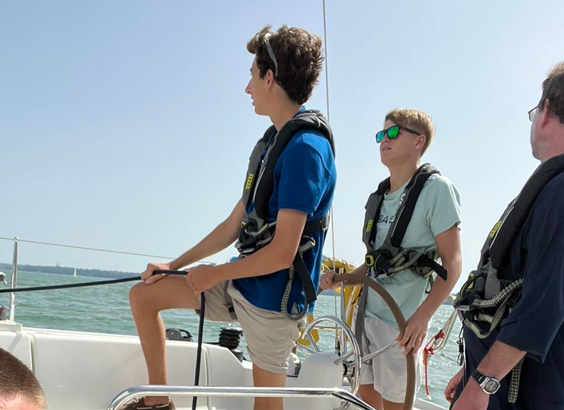Designated Person Ashore (DPA) Guide
In the maritime industry, ensuring the safety and security of ships and yachts is of the utmost importance. The DPA plays a critical role in maintaining and improving safety standards, serving as a shore-based point of contact for vessel operators.
What is a Designated Person Ashore? Role Information and Responsibilities
A Designated Person Ashore, often referred to as a DPA, is a shore-based professional who assumes responsibility for the safety and security of ships and yachts. The DPA acts as a crucial link between the vessel and shore-based management, ensuring compliance with international regulations and company policies.
The primary responsibility of a DPA is to establish and maintain an effective safety management system for the vessel or fleet. They play a pivotal role in promoting a safety culture and monitoring the implementation of safety procedures onboard. The DPA also acts as a point of contact for crew members, providing guidance and support in matters related to safety and security.
A DPA’s tasks and duties may vary depending on the organisation and vessel type, but some common responsibilities include:
- Safety Management: The DPA is responsible for overseeing and ensuring compliance with safety management systems, including the International Safety Management (ISM) Code. They develop and implement safety policies, conduct risk assessments, and review incident reports to identify areas for improvement.
- Emergency Response: In the event of an emergency, the DPA coordinates and supports the vessel’s response efforts. They liaise with the vessel’s master or captain, shore-based authorities, and emergency services to ensure effective communication and timely assistance.
- Training and Education: The DPA plays a vital role in promoting safety awareness and providing training to crew members. They organise safety drills, deliver safety-related presentations, and ensure that the crew is equipped with the necessary knowledge and skills to handle emergency situations.
- Incident Investigation: When incidents occur onboard, the DPA conducts thorough investigations to determine the root causes and prevent recurrence. They analyse incident reports, collect evidence, and make recommendations for corrective actions to enhance safety measures.
- Regulatory Compliance: The DPA stays up-to-date with international regulations and industry standards to ensure that the vessel operates in compliance with applicable laws. They monitor changes in regulations, conduct internal audits, and provide guidance to the vessel’s management on maintaining regulatory compliance.
These are just a few examples of the responsibilities typically handled by a DPA. The role requires strong communication, organisational, and problem-solving skills to effectively manage safety-related matters.
![]()
Designated Person Ashore Qualifications
Becoming a Designated Person Ashore requires a combination of education, experience, and specialised knowledge. While specific qualifications may vary depending on the organisation and vessel type, here are some general qualifications often sought for this role:
- Education: A bachelor’s degree or higher in a relevant field such as maritime studies, naval architecture, or marine engineering is often preferred. This educational background provides a solid foundation of knowledge in maritime operations, safety management, and regulatory compliance.
- Industry Experience: Prior experience in the maritime industry, preferably in a managerial or supervisory role, is highly valuable for a DPA. This experience allows individuals to understand the operational challenges and dynamics of vessel management, which is essential for effective decision-making and problem-solving.
- Certifications and Training: There are various certifications and training programs available that can enhance the qualifications of a DPA. These may include certifications in safety management systems, incident investigation, and emergency response. Additionally, completing courses related to regulatory compliance and international maritime conventions can strengthen the knowledge and skills required for the role.
- Communication and Leadership Skills: Strong communication and leadership skills are essential for a DPA. This role involves interacting with various stakeholders, including vessel operators, crew members, and shore-based management. Effective communication ensures clear dissemination of safety-related information and promotes a positive safety culture within the organisation.
Designated Person Ashore Salary
The compensation for a Designated Person Ashore can vary depending on several factors, including experience, industry sector, and geographical location. Generally, the salary range for a DPA falls between USD 60,000 and USD 120,000 per year. However, it’s important to note that these figures are approximate and can vary significantly based on the aforementioned factors.
In addition to the base salary, DPAs may receive additional benefits such as health insurance, retirement plans, and performance-based bonuses. The compensation package can also be influenced by the size and reputation of the organsation employing the DPA.
It’s worth mentioning that the role of a DPA is highly demanding and carries significant responsibilities. The compensation reflects the specialised knowledge, experience, and managerial skills required for the position.
Latest posts







